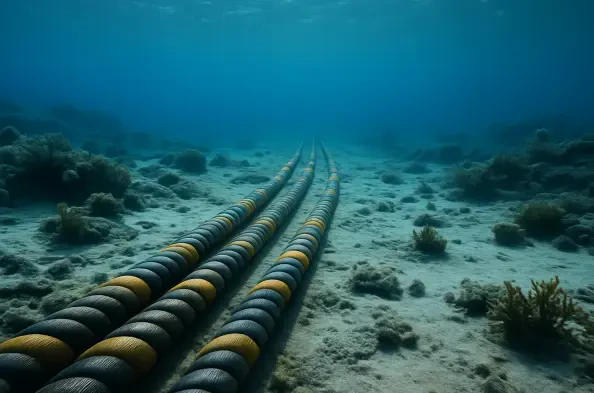Submarine communication cables have long served as the backbone of global connectivity, handling an overwhelming 99% of international internet traffic. Despite their pivotal role, these cables are increasingly viewed as vulnerable targets for sabotage, particularly by adversarial nations like China and Russia. Recently, U.S. lawmakers have heightened their focus on these concerns, questioning major technology firms regarding their protective measures against potential threats involving these infrastructures. The urgency stems from suspicions around Chinese-linked entities such as Huawei Marine and China Telecom, which are suspected of tampering with these critical lines. Growing evidence points to coordinated sabotage efforts in strategic locales like the Baltic Sea and Indo-Pacific regions, leaving the industry on high alert about potential disruptions.
Rising Threats to Submarine Cable Infrastructures
Legislative Concerns Over Cable Security
As geopolitical tensions escalate, U.S. lawmakers have expressed significant concern over submarine cables’ susceptibility to sabotage, prompting demands for transparency from prominent tech companies. Representatives such as John Moolenaar, Carlos Gimenez, and Keith Self have approached CEOs of leading firms like Alphabet, Meta, Amazon, and Microsoft, requesting assurances on the security of these infrastructures. Their correspondence highlights the risks posed by Chinese-affiliated entities that participate in the maintenance and operation of these cable networks. Accusations of hardware tampering and signal distortion have exacerbated tensions as policymakers fear the implications on national security. This dialogue underscores the need for increased vigilance, particularly as countries like China and Russia are suspected of executing coordinated attacks on these systems within key strategic areas globally.
Strategic Areas Under Siege
Recent incidents have intensified concerns over submarine cable security, particularly in vulnerable regions such as the Baltic Sea. The severing of undersea cables in this area has raised alarms due to the strategic military relevance of these lines for nations bordering the region. Accusations against Chinese vessels regarding possible sabotage activities in Taiwanese waters further deepen the crisis, highlighting the urgency of robust protective measures. Hypothetical aggressive maneuvers and evidence of sabotage underscore the necessity for international cooperation and stringent security protocols. As cable security remains a central concern, there is growing advocacy for bolstering defenses against potential adversarial actions, including legislative efforts and technological advancements to safeguard these vital conduits of global communication.
Regulatory Actions and Industry Response
Federal Communications Commission Initiatives
In response to mounting security concerns, the Federal Communications Commission is taking decisive measures to fortify national security by banning connections involving Chinese technology, seeing them as potential threats to U.S. infrastructure. This regulatory stance reflects broader actions initiated since 2020 aimed at controlling the infiltration of foreign tech into American communication networks. The implications of such regulatory interventions are expected to reverberate across the telecommunications industry, reshaping partnerships and influencing future collaboration strategies. This proactive approach demonstrates the commitment to guarding submarine cables against potential sabotage and ensuring uninterrupted communication services worldwide, providing essential defenses against emerging global challenges.
Tech Giants Weigh In
In light of these developments, major U.S. tech companies are expected to respond to legislative inquiries, possibly by August 8, revealing any anomalies or issues related to the security of submarine cables. Their feedback will likely influence policy decisions and coordinated efforts aimed at strengthening protective mechanisms against potential incursions. The significance of transparent communication and proactive security strategies is undeniable in mitigating potential threats posed by foreign adversaries. As stakeholders across the tech industry collaborate on security enhancement measures, their involvement underscores the importance of safeguarding the digital communication lifeline. This cooperative approach is anticipated to create an adaptive framework resilient to potential threats, ensuring continuous connectivity and communication globally.
Future Considerations for Connectivity Security
Submarine cable security requires a multifaceted strategy that integrates legislative rigor, industry collaboration, and technological innovation to counter emerging threats efficiently. As the world grapples with evolving geopolitical dynamics, safeguarding these infrastructures is imperative for global communication networks. Industry leaders are urged to balance open collaboration with stringent security protocols that can thwart potential sabotage attempts. While current measures are promising, continual advancements will be crucial in developing resilient and impenetrable systems that withstand adversarial activities. Looking ahead, the collective focus on enhanced security strategies will not only protect crucial infrastructures but also pave the way for sustainable international cooperation in maintaining robust, secure global connectivity.






